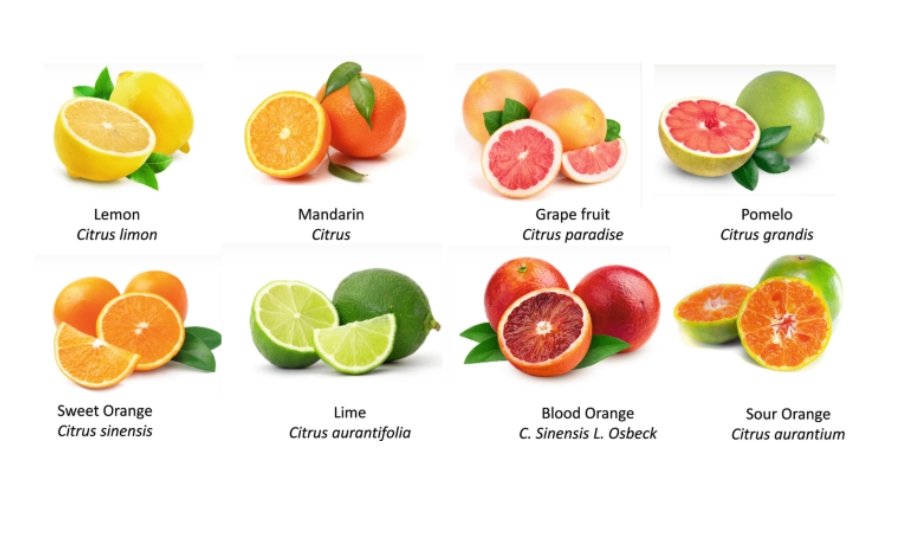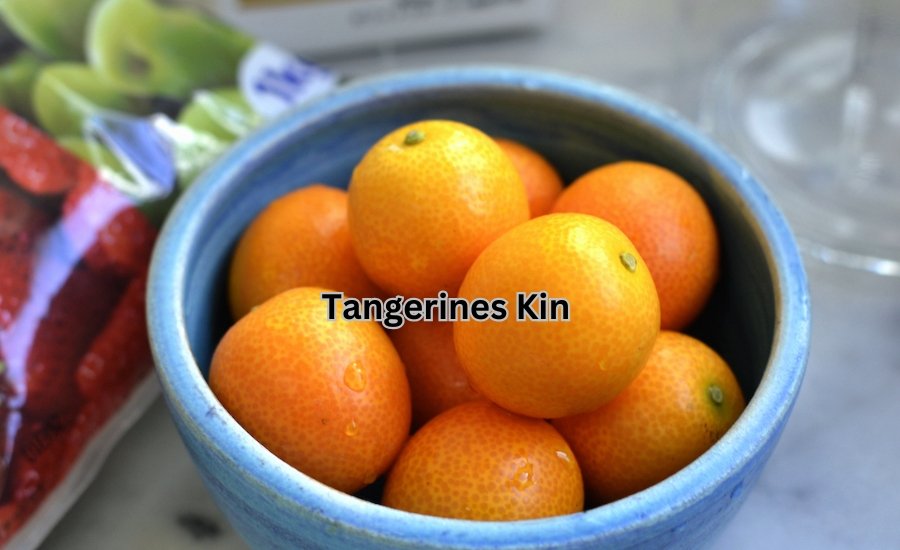Tangerine Kin (or Citrus Fruits), more commonly referred to as citrus fruits, refers to an assortment of fruits belonging to the same citrus family as tangerines. They share similar features like tart flavor and vibrant hues; easy peeling; such as mandarins, clementines, satsumas and oranges among many more! Tangerines offer many health advantages as part of a daily diet; their refreshing tastes and versatile uses make them popular choices, while their nutritional profile makes them invaluable assets!
What Are Tangerines Kin?
Tangerines Kin is the name given to citrus fruits closely related to tangerines with similar genetic backgrounds that share both sweet and tart tastes like those we all know and love about tangerines. Common examples are mandarin oranges (sometimes known as mandarin mandarines ), packed full of vitamin C for refreshing nutrition with juicy textures delight. Common varieties also include clementines, satsumas, and tangelos which offer their own twist on familiar tangerine taste; all members belong to one citrus family thus offering similar nutritional benefits no matter its size or shape!
Importance of Citrus Fruits in Daily Life

Citrus fruits play an essential part of our everyday diet for many reasons. Not only are they packed full of essential vitamins like Vitamin C that support immunity and overall well-being, they’re also low-cal snacks perfect for supporting digestive health – their high fiber content making for easier digestibility! In addition, their natural sweetness make citrus fruits popular choices among consumers everywhere and its versatility ensures widespread inclusion globally!
Types of tangerines kin
Tangerines come in various varieties, each providing its distinct texture and taste. Here is a sample of some popular types:
- Mandarins
Mandarins are considered one of the “parent” fruits for many other citrus fruits. Small in size but large in flavor, Mandarins feature smooth skin and segmented flesh for easy peeling – ideal as snack options or used in fruit salads or desserts! - Clementines
Clementines are an exquisite hybrid of mandarins and citrus fruits. They boast a small size, a seedless composition, and irresistibly juicy, delicious sweetness—perfect for kids and adults alike! Their convenience makes clementines one of our go-to fruits! - Satsumas
Satsumas, native to Japan, are irresistibly juicy mandarin fruits known for their smooth texture and delicious juiciness—ideal additions for snacking or fruit salads! - Oranges
Oranges may be larger than their tangerine relatives, yet they share many similar qualities. Oranges are popularly recognized for their juicy pulp and balanced blend of sweetness and tartness, and thus, they are used in numerous dishes, juices, and desserts. - Other Lesser-Known Relatives
Other lesser-known varieties are the tangelos – hybrids between tangerines and grapefruits – and minneolas with sweet yet tarty flavors; though less popular varieties, both offer delicious twists to traditional citrus tastes.
Characteristics of tangerines kin
Each member of the tangerine kin comes with its own set of unique characteristics:
- Flavor Profile: Sweetness and Tanginess
Citrus fruits such as the tangerine are known for their refreshing blend of sweetness and tartness, thanks to the natural sugars found within. Meanwhile, citric acid provides its tart character for an exciting, mouthwatering flavor experience. - Peelability and Ease of Use
One of the key distinctions of tangerines lies in their effortless peeling ability compared to other fruits; their thin skin makes peeling easy by hand, unlike some citrus varieties with thick peels requiring tools. - Nutritional Value
Tangerines contain many essential vitamins, including abundant Vitamin C, to aid immune function. Furthermore, these fruits offer fiber, antioxidants, and important minerals necessary to any diet plan – making tangerine fruits an invaluable part of daily wellness.!
Health Benefits of tangerines kin

Tangerines provide numerous health advantages, making them a key component of a balanced diet:
- High Vitamin C Content
Citrus fruits contain vitamin C, which is integral to strengthening immunity. Vitamin C also assists with collagen production, which is essential to skin health. - Boosting Immunity
Tangerine juice contains abundant antioxidants to fight free radicals and build immunity, leading to improved overall health benefits and decreased risks of infections. Regular consumption could contribute significantly to improved overall wellbeing and lower risks of infections. - Antioxidants and Their Role
Tangerines contain powerful antioxidants to combat oxidative stress and inflammation as well as protect against chronic diseases, making these fruits essential in maintaining heart and skin health. - Supporting Digestive Health
Tangerine kin fruits contain plenty of fiber for healthy digestion and aiding regular bowel movements while helping avoid constipation – helping maintain a healthier gut environment overall.
Tangerines kin in Everyday Life
Tangerines are highly adaptable fruits that can be utilized in various aspects of everyday life:
- Culinary Uses
Fruit has long been valued for its nutritional properties in many dishes and drinks ranging from salads and baked goods, grilled foods or roasting to enhance its natural sweetness. - Salads
Tangerine-colored fruits add a refreshing citrus kick to salads for an all-around healthy experience. Combine with greens, nuts, and cheese for an irresistibly delicious dish! - Desserts
Tangerine juice is refreshing and filled with essential vitamins. Enjoy alone or mix it up with other fruits for an irresistibly flavorful beverage that combines nutritional benefits and taste! - t.Juices
Juice made from tangerine kin fruits is refreshing and packed with essential vitamins. Enjoy it alone or combine it with other fruits for an irresistibly flavorful drink with nutritional benefits and flavor. - Storage Tips to Keep Them Fresh
Store tangerine fruits in a cool, dry area like your refrigerator. Proper storage could extend their shelf life up to two weeks, or for additional preservation, consider freezing.
Popular Crossword Clue Associations
Crossword puzzle enthusiasts frequently encounter “tangerine kin” clues when searching for citrus-related solutions; many encounter “orange.” Tangerines and oranges belong to the same citrus family and thus offer similar flavors and appearances, leading many crossword enthusiasts to interpret this clue correctly as being related.
- The Meaning Behind tangerines kin
Tangerine Kin” refers to other citrus fruits closely related to tangerines. Such relatives, such as mandarins, clementines, and oranges, share many features that make them appropriate crossword puzzle solutions. - Common Answers in Puzzles
Other popular crossword answers for “tangerine kin” besides orange include mandarin and citrus fruit – reflecting their shared family background and genetic makeup. - Why “Orange” is a Popular Solution
Due to its widespread recognition and close association with tangerines, orange is frequently an answer in puzzles. Both fruits share similar sizes, flavors, and appearance characteristics, making “orange” an obvious solution in these instances.
Fun Facts About tangerines kin
Tangerines are delicious fruits with an intriguing history and plenty of fascinating facts:
- History and Origins
Citrus fruits such as tangerines and oranges have been domesticated and grown for millennia; one source suggests their cultivation began as far back as ancient China when domestication first occurred. - Fun Facts and Trivia
Tangerines are popular fruits for both children and adults. They are revered for being easy-to-peel fruits that provide delicious snack food options for sharing and portability. Some varieties, like Clementines, are even sold in boxes to ensure ease of carrying and sharing!
Conclusion
Tangerines kin fruits are an enticing family of citrus fruits with many advantages, from their sweet yet tart taste profile to impressive nutritional values and ease of peeling to be included in various dishes – they remain popular among people of all ages! Enjoyed fresh or juiced in meals, or enjoyed fresh from their tree for health promotion purposes and flavor enhancement. Regardless of consumption method or method, tangerine kin fruits play an essential part in our everyday lives and enhance flavor enhancement and health promotion efforts. Whether they come straight out of the tree, juiced from, or included in recipes, no matter where or when eaten from it comes from freshness reigns supreme! With such a long history and popularity, it remains intact: beloved among people of all generations!
FAQS
Q: What are tangerines kin?
A: Tangerines kin are citrus fruits closely related to tangerines, including mandarins, clementines, satsumas, and oranges. They share similar flavors, textures, and nutritional benefits.
Q: What makes tangerine kin fruits easy to use?
A: Tangerine kin fruits have thin, easy-to-peel skins, making them convenient for snacking and adding to dishes without extra tools.
Q: Why are tangerine kin fruits good for health?
A: These fruits are rich in vitamin C, antioxidants, and fiber, which support immunity, digestion, and overall well-being.
Q: How can I use tangerine kin fruits in recipes?
A: Tangerine kin fruits are great in salads, desserts, juices, and fresh snacks. They can also be incorporated into savory dishes for a citrusy twist.
Q: How should I store tangerine kin fruits?
A: Store tangerine kin fruits in a cool, dry place or refrigerate them to keep them fresh for up to two weeks. You can also freeze them for longer storage.
Go to Homepage for more Information
